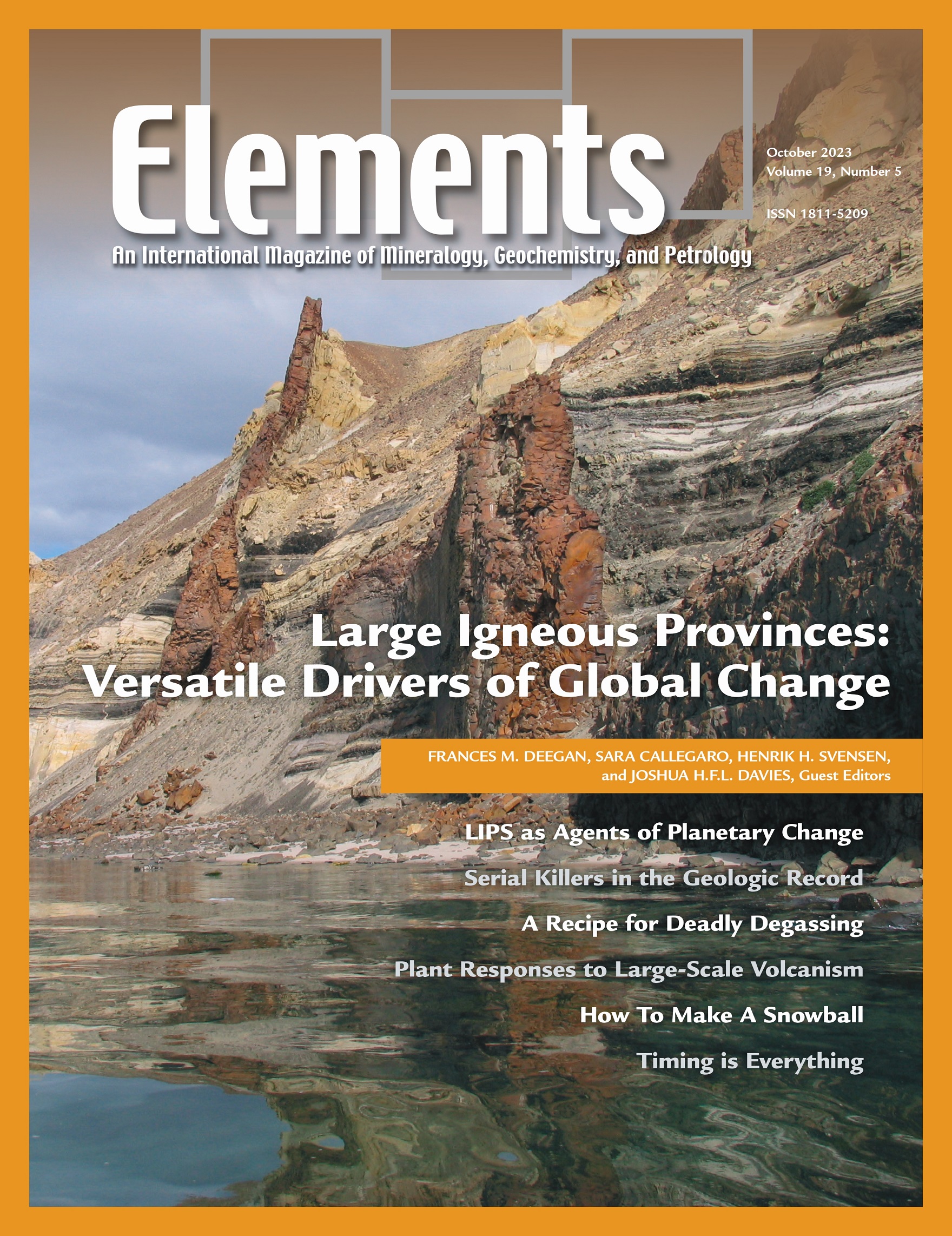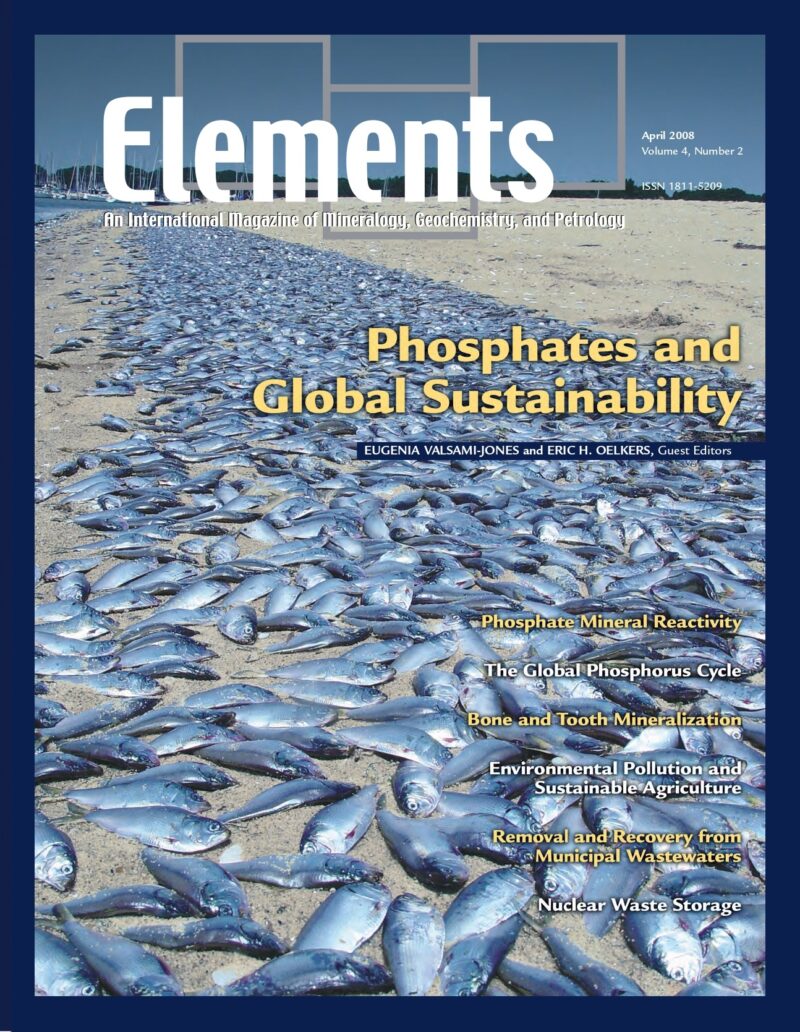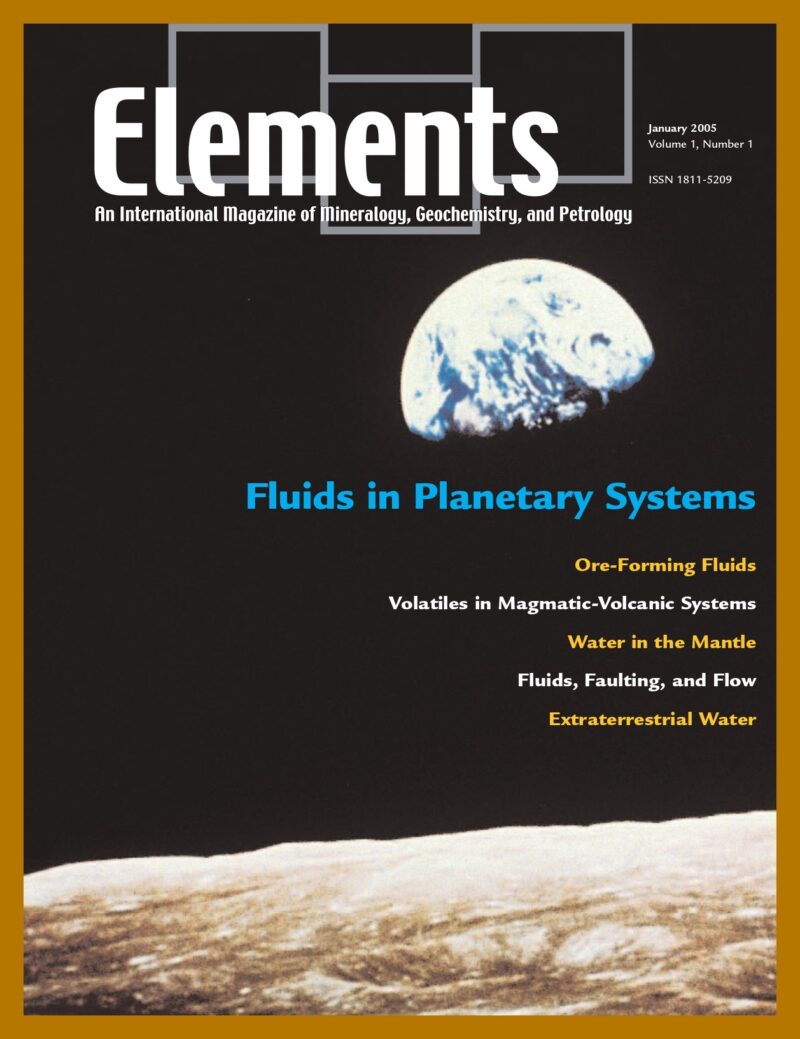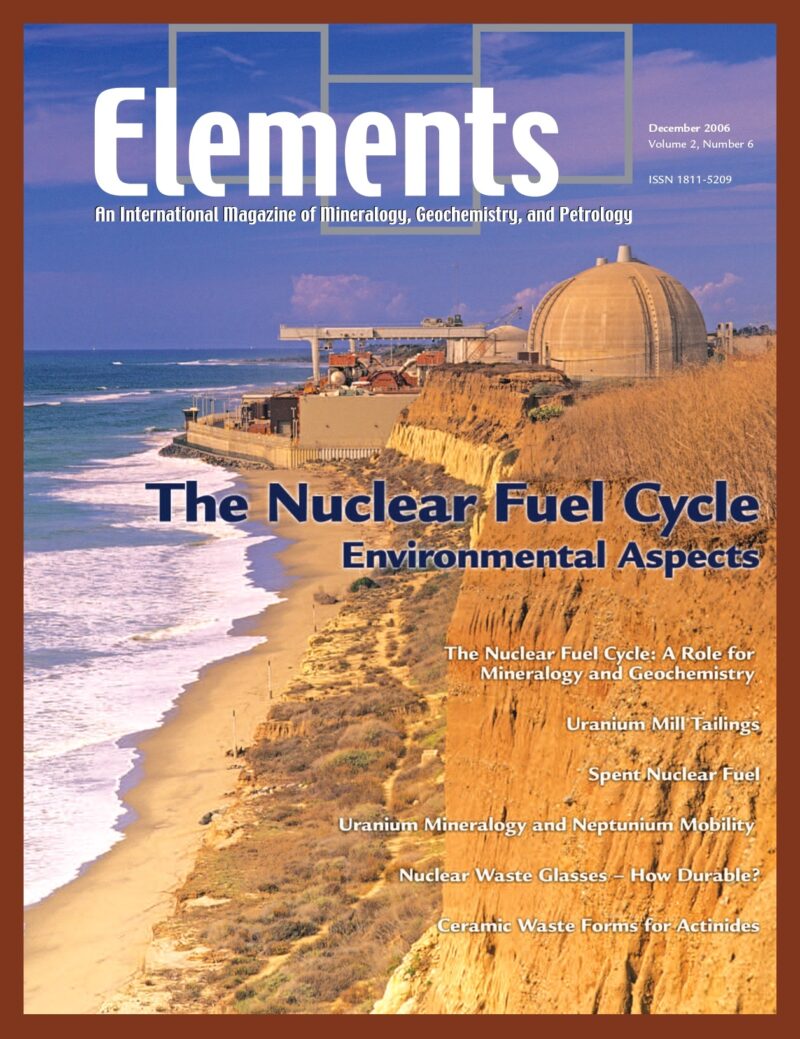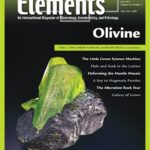
Olivine, June 2023, Vol. 19, No. 3
June 28, 2024
Elements Joint Society Calendar (2025–2026)
July 17, 2024Large Igneous Provinces: Versatile Drivers Of Global Change, October 2023, Vol. 19, No. 5
$20.00
Earth’s history is punctuated by volcanic episodes at a scale never witnessed by humans, known as large igneous provinces (LIPs). These extraordinary volcanic and tectonic events are associated with profound changes to planet Earth, including its climate and habitability.
Large Igneous Provinces: Versatile Drivers Of Global Change
October 2023, Vol. 19, No. 5
Earth’s history is punctuated by volcanic episodes at a scale never witnessed by humans, known as large igneous provinces (LIPs). These extraordinary volcanic and tectonic events are associated with profound changes to planet Earth, including its climate and habitability. One of the major factors controlling the impacts of LIPs is the cocktail of gases emitted to the atmosphere and oceans. In this issue of Elements, we explore the versatile impacts of LIPs, from their connections to mass extinctions in aquatic and terrestrial environments to climate warming and global icehouse events. This issue also highlights our current understanding of subterranean architectures of LIPs, processes and consequences of interaction between LIP magma and surrounding crustal rocks, and advances in the timing of intrusive events.
Why You’ll Love Elements Magazine:
- Expert Contributors: Articles written by renowned researchers in the field of geoscience.
- Engaging Content: Join a community of readers who are passionate about Elements.
- Exceptional Quality: Each issue is printed on high-quality paper with stunning visuals and detailed illustrations that bring complex scientific concepts to life.
Order your copy of the October 2023 issue of Elements magazine today and delve into large igneous provinces: versatile drivers of global change.
Related products
-
Phosphates And Global Sustainability, April 2008, Vol. 4, No. 2
$20.00Phosphorus is a unique element: it is essential to the existence of all living forms, and as such controls biological productivity in many terrestrial and marine environments; but when in excess, it leads to uncontrollable biological growth and water-quality problems. This has become a common environmental issue, resulting from our careless use of phosphorus in agriculture, yet phosphate ore deposits, from which fertilizers are produced, are a finite natural resource.
-
Fluids in Planetary Systems, January 2005, Vol. 1, No. 1
$20.00Water and other geofluids play an important role in the geochemical and rheological evolution of the Earth and other bodies in the solar system. These fluids are responsible for the formation of hydrothermal mineral deposits, affect eruption behavior in volcanic systems and the geophysical properties of the mantle, and significantly affect the way in which rocks deform and fracture.
-
The Nuclear Fuel Cycle – Environmental Aspects, December 2006, Vol. 2, No. 6
$20.00Increasing concerns for the effects of global warming that result from rising greenhouse gas concentrations in the atmosphere have led to a reexamination, even enthusiasm, for nuclear power. Of all the current alternatives to fossil fuels, nuclear fission is the most important source of energy, accounting for 17 percent of the world’s electricity.

